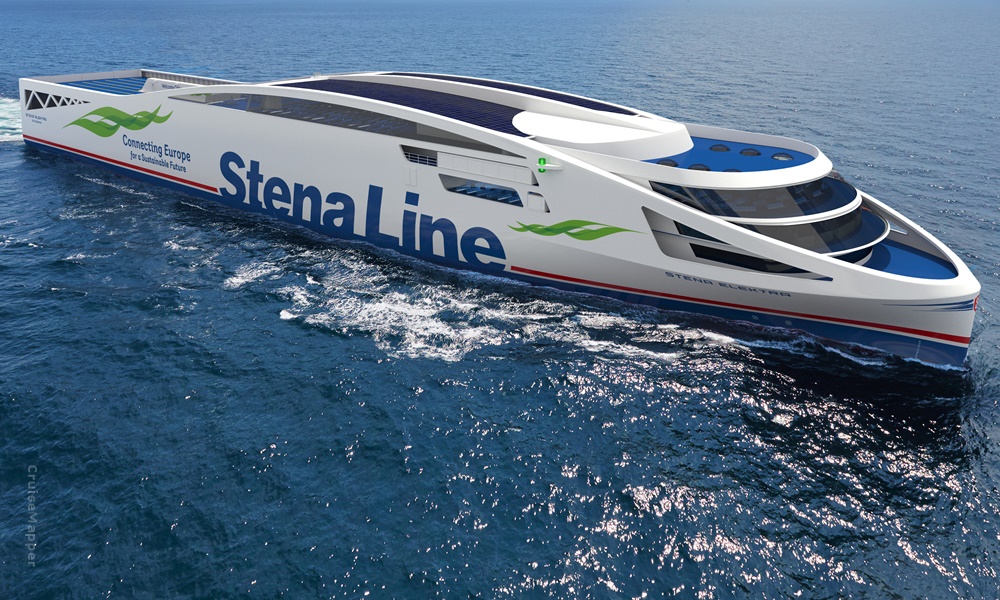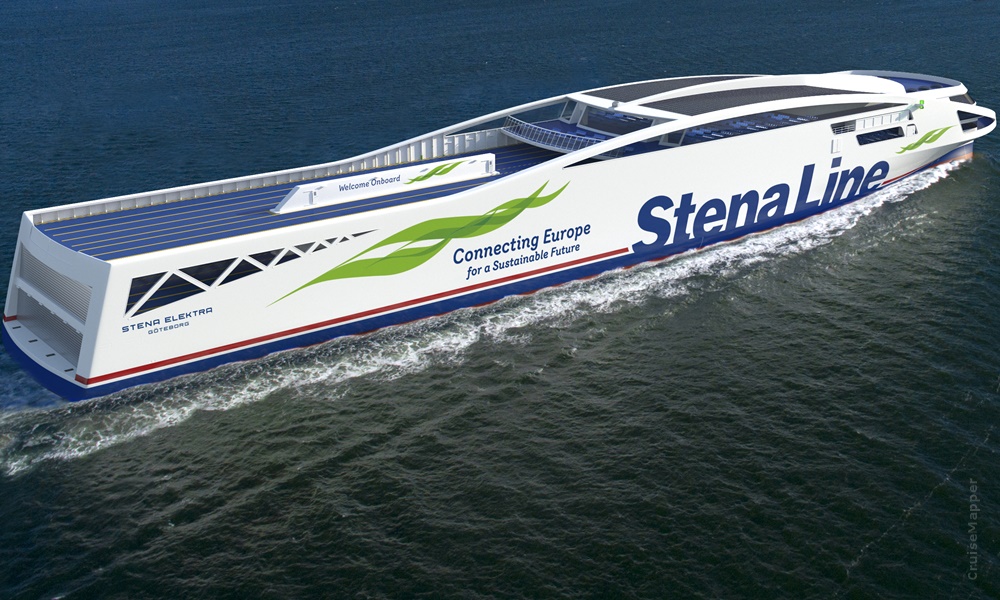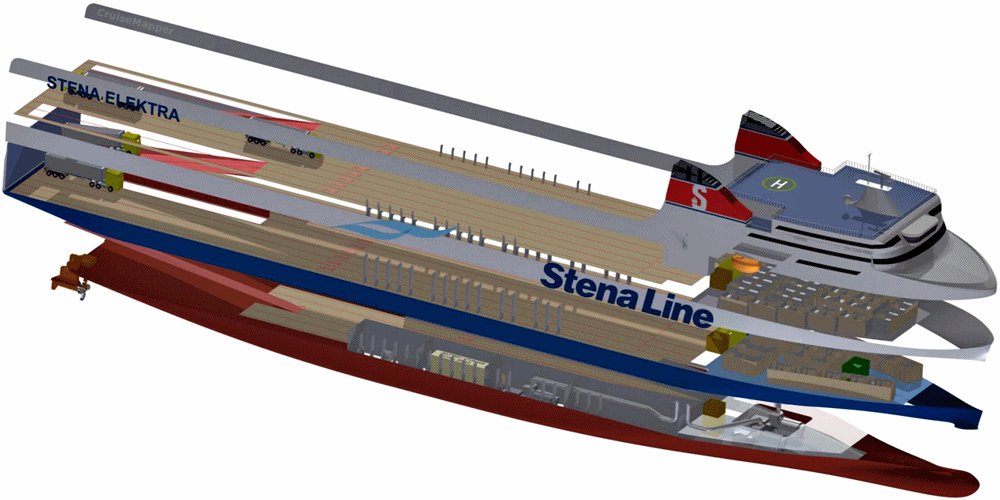Stena Line plans to operate two battery-powered ships on the Sweden-Denmark route Goteborg/Gothenburg-Frederikshavn before 2030.
Stena's CEO Niclas Martensson announced the plans in a press conference for the industry collaboration project the Tranzero Initiative in Goteborg. For this project, Stena Line partnered with Volvo Group, Scania and Port Goteborg, aiming to reduce carbon emissions linked to the seaport by 70% by 2030.

According to the ferry company, the first newbuild (Stena Elektra) will be the world's first fossil fuel-free Ro-Pax vessel (wheeled cargo and passenger ship). Vessel details include LOA length ~200 m (~655 ft), max passenger capacity 1000, freight capacity 3000 lanemetres (3x car decks for ~600 cars or ~170 trucks/trailers). The ship will be built from high tensile steel to lower the weight as well as increase efficiency. It is estimated that she will be able to run on battery power for ~50 NM/nautical miles (the Goteborg-Frederikshavn sea distance).

To achieve the distance, the battery pack capacity has to be ~60-70 MWh and the vessel will be with shoreside power capabilities allowing it to be charged while docked in port.

Stena Line is investigating the possibility of combining electrification with alternative fossil-free fuels (like fuel cells, hydrogen, bio methanol) to give the ships a greater reach.